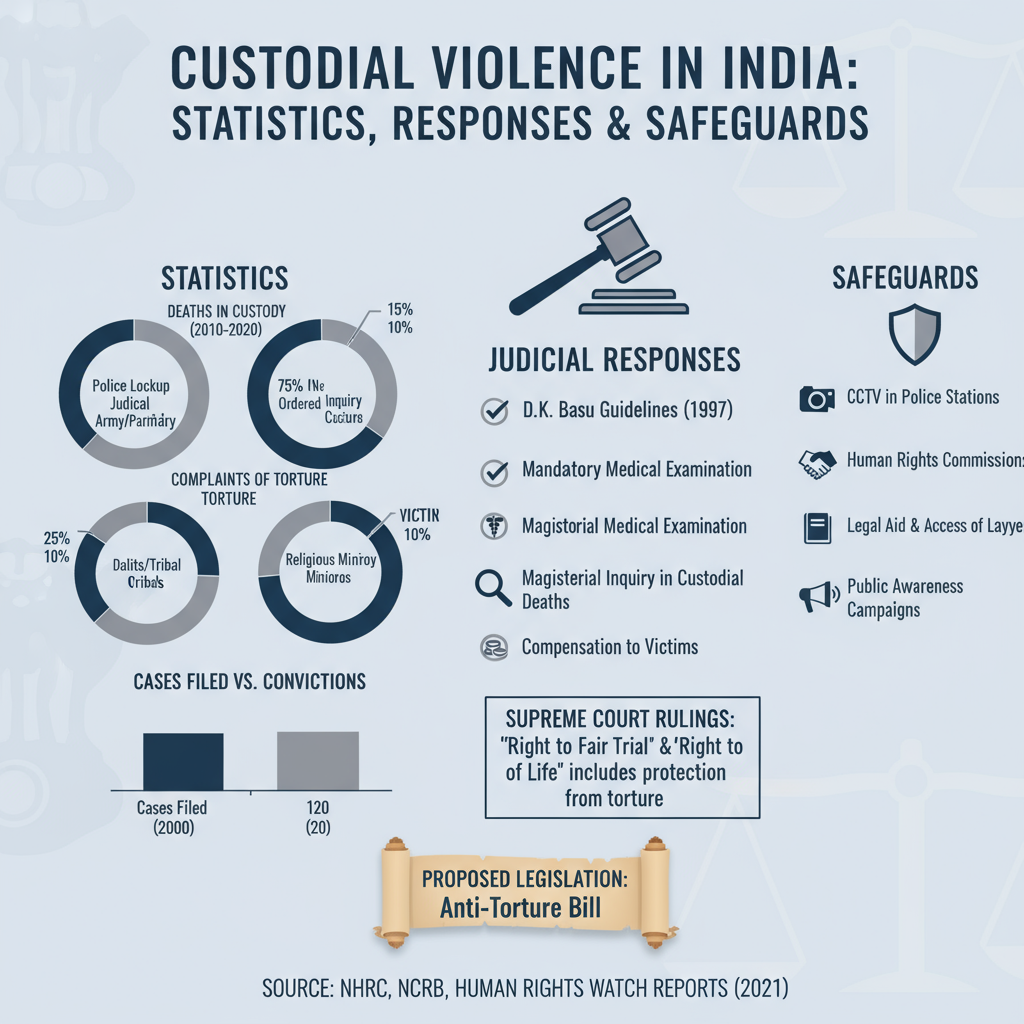Published on: 24th November 2025
Authored by: Fatima Omer Abdelaziz Abdalla
Cairo University
Court
European Court of Human Rights (Grand Chamber)
Bench
Jean‑Paul Costa (President); Françoise Tulkens; Josep Casadevall; Rait Maruste; Karel Jungwiert; Dean Spielmann; Mark Villiger; Isabelle Berro‑Lefèvre; Mirjana Lazarova Trajkovska; Nona Tsotsoria; Kristina Pardalos; Guido Raimondi; Nebojša Vučinić; Vincent A. de Gaetano; André Potocki; Angelika Nußberger; Päivi Hirvelä[1].
Date of Judgement
21 January 2011.[2]
Relevant Provisions / Statutes
- European Convention on Human Rights, Article 3 (prohibition of torture and inhuman or degrading treatment)
- European Convention on Human Rights, Article 13 (right to an effective remedy)
- Dublin II Regulation (Council Regulation (EC) No 343/2003)[3]
(Note: Protocol No 4 Article 4 was referenced in Strasbourg’s reasoning on sovereignty of asylum decisions.)
Brief Facts
The applicant, M.S.S., an Afghan national, worked as an interpreter in Kabul and fled in 2008 following threats to his life.[4] He entered the European Union via Greece, where he was fingerprinted under the EURODAC system but did not apply for asylum immediately. Instead, he later traveled to Belgium, where he lodged an asylum application.[5] Belgium requested Greece to assume responsibility under the Dublin II Regulation, and Greece accepted.[6] Accordingly, in June 2009, the Belgian authorities transferred M.S.S. back to Greece.[7]
Upon return, the applicant was placed in detention under severely overcrowded and unsanitary conditions—cells lacked adequate ventilation, heating, sanitation, and access to natural light.[8] He reported sleeping on dirty blankets, being deprived of toilet access, and suffering injuries without medical care.[9] Greece subsequently released him but did not provide shelter, support, legal information, or asylum assistance, forcing him to live in the street with exposure to extreme hardship and risk.[10] He made unsuccessful attempts to apply formally for asylum.[11]
He applied to the European Court of Human Rights in June 2009, alleging violations of Article 3 (for cruel, inhuman or degrading treatment) and Article 13 (lack of effective remedy) by both Greece and Belgium.[12]
Procedural History
- Application lodged: 11 June 2009.[13]
- Interim measures requested from the ECtHR registry.[14]
- The case was expedited and referred to the Grand Chamber under Article 30 ECHR due to its systemic importance.[15]
- Third‑party interventions were received from UNHCR, Amnesty International, Human Rights Watch, and the European Commission.[16]
- Oral hearing took place on 1 September 2010.[17]
- Judgment delivered on 21 January 2011.[18]
Issues
- Whether Greece violated Article 3 ECHR by subjecting the applicant to inhuman or degrading treatment during detention and in post-release living conditions.
- Whether Greece violated Article 13 ECHR, read with Article 3, for failing to provide an effective remedy through its asylum procedure.
- Whether Belgium violated Article 3 ECHR by transferring the applicant to Greece despite awareness of systemic asylum deficiencies.
- Whether Belgium violated Article 13 ECHR, read with Article 3, by failing to offer an effective mechanism to challenge the transfer decision.
Petitioner’s Arguments
The applicant, represented by legal counsel and supported by NGO documentation, made these arguments:
- On Greece: The detention conditions were inhumane and degrading—exceeding permissible hardship thresholds established in prior case law. His post‑release homelessness, compounded with denial of social support, further violated Article 3. There was no meaningful access to asylum procedures, no interpreters, no legal aid, and no proper means to lodge a claim or appeal, thereby breaching Article 13 in conjunction with Article 3.[19]
- On Belgium: Belgian authorities had publicly accessible evidence (UNHCR, European Commission, CPT, NGO reports) showing systemic deficiencies in Greece’s asylum and reception system. Despite this, Belgium executed the transfer without evaluating individual risk, violating Article 3 through omission. Further, Belgium offered no effective remedy to prevent the transfer—thus violating Article 13 in conjunction with Article 3.[20]
Respondents’ Arguments
- Greece contended Article 3 was not violated because detention was of limited duration and within national standards. Greece asserted asylum procedures were available, that the applicant did not pursue them properly, and that any hardships were due to resource constraints—not systemic failure.[21]
- Belgium argued it acted in good faith under the Dublin II Regulation. It relied on the principle of mutual trust among EU states, asserting no obligation existed to independently verify Greece’s compliance with human rights obligations. Belgium emphasised that any remedies should have been sought in Greece, not Belgium.[22]
Judgment
Legal Framework
The Grand Chamber reaffirmed the absolute nature of Article 3 ECHR, citing leading cases such as Soering v United Kingdom (deportation risk) and Dougoz v Greece (detention conditions as direct breach).[23] It underlined that Article 13 requires remedial mechanisms that are “effective in practice,” including preventive or suspensive appeal for transfers (Kudła v Poland; Gebremedhin v France).[24] The Court made clear: EU law such as Dublin II cannot override ECHR duties, and mutual trust is not absolute.[25]
Application of Law to Facts
Against Greece:
- The Court evaluated medical expertise, photographic documentation, and witness testimony regarding the conditions in Greek detention. It concluded these conditions were sufficiently grave to breach Article 3—overcrowding, unsanitary environment, lack of access to facilities, prolonged lack of healthcare, and exposure to violence by other detainees.[26]
- Post-release, M.S.S. endured destitution without shelter or support. The Court held that material deprivation amounting to physical and psychological suffering could constitute degrading treatment under Article 3, especially where the state had a positive reception obligation under its Reception Directive, which Greece had transposed.[27]
- Concerning Article 13, the asylum process was largely non-functional: no interpreters, no legal aid, no meaningful application mechanism, and inconsistent record-keeping. These deficiencies deprived the applicant of an effective remedy.[28]
Against Belgium:
- Officials in Belgium had received warnings via the UNHCR, European Commission and CPT about Greek asylum failures. Despite awareness, Belgium did not conduct its own risk assessment or suspend transfers. The Court held that failing to act in light of credible evidence constituted a breach of Article 3.[29]
- On Article 13, Belgium offered no appeal system with suspensive effect. Legal obstacles—including tight deadlines, minimal support, and procedural complexity—meant the applicant could not meaningfully challenge the transfer, violating Convention guarantees.[30]
Throughout, the Court placed considerable weight on external third-party reports. Neither respondent provided credible counter-evidence to disprove the allegations.
Ratio Decidendi
The Court’s binding legal principle is:
A state must not rely solely on EU regulations (such as the Dublin II Regulation) to justify transferring an asylum seeker if credible evidence shows the destination country cannot ensure Article 3 compliance. Moreover, any state executing such a transfer must ensure the applicant has access to an effective, accessible remedy—preferably with automatic suspensive effect—to prevent rights violations.
Obiter Dicta
The judgment contained significant observations:
- That the presumption of safety and mutual trust within the EU is rebuttable, especially when there is substantial evidence of systemic violations.
- That future cases should involve individualized risk assessments before executing transfers.
- That EU institutions (e.g. CJEU and Commission legislatures) may need to reform Dublin and asylum practices to align with Convention principles.[31]
These dicta have influenced later jurisprudence and policy debates.
Final Decision / Disposition
- Greece was found in violation of Articles 3 and 13.
- Belgium was found in violation of Articles 3 and 13.
- The Court awarded €9,000 in non-pecuniary damages and €15,900 for costs and expenses. Total damages: €24,900.
- Both states were ordered to comply within three months, or face default interest.
- Greece was instructed to examine M.S.S.’s asylum claim in a Convention-respecting process and refrain from deporting him in the meantime.[32]
Concurring Opinions
Certain judges issued concurring opinions emphasising that this decision does not repeal the Dublin system, but rather delineates its limits. They emphasised states’ positive obligations to assess risk and ensure human rights compliance, regardless of bureaucratic protocols.[33]
Dissenting Opinions
A minority—including Judges Bratza and Kasimov—dissented partly, arguing that Belgium fulfilled its procedural obligations under EU law and that Greek deficiencies did not justify holding Belgium responsible. They warned that this ruling risked destabilizing EU solidarity mechanisms and shifting asylum burdens unpredictably.[34]
Scholarly Insights and Broader Impact
This judgment is widely regarded as a watershed in European asylum jurisprudence. Many scholars praise it for translating the absolute nature of non-refoulement into intra-EU transfers and for reinforcing the principle that human rights obligations cannot be outsourced or ignored by bureaucratic regulation.[35] It forced the European Commission and EU member states to suspend Dublin transfers to Greece, and sparked debates across national courts and civil society in Germany, Sweden, and elsewhere.
Critics argue the decision may overburden “first arrival” countries, complicate the Dublin system, and legalise asylum shopping by incentivizing transfers only to states with stronger systems.[36] Concerns have been raised that the ECtHR is indirectly enforcing socio-economic rights via Article 3 reasoning, potentially expanding the Convention beyond its intended scope.[37]
Internationally, M.S.S. has informed jurisprudence in Canada, Latin America, and Australia regarding state obligations in transfers and the risk of cruel, inhuman or degrading treatment. Its legacy continues in subsequent cases such as Tarakhel v Switzerland (2014) and A.M.E. v The Netherlands (2015), which clarified evidentiary thresholds and procedural safeguards.[38] Today, the case is a cornerstone of strategic litigation and advocacy against returns to countries with systemic asylum failures, deepening the legal discourse on shared responsibility and reshaping how courts approach structural deficiencies in international protection systems and refugee law.
[1] M.S.S. v Belgium and Greece, App No 30696/09 (ECtHR, Grand Chamber, 21 January 2011) section 1.
[2] M.S.S. v Belgium and Greece (n 1) section 2.
[3] Council Regulation (EC) No 343/2003 of 18 February 2003 establishing mechanisms for determining the member state responsibility (Dublin II Regulation).
[4] M.S.S. v Belgium and Greece (n 1) sections 22–28.
[5] M.S.S. v Belgium and Greece (n 1) sections 30–33.
[6] M.S.S. v Belgium and Greece (n 1) sections 40–45.
[7] M.S.S. v Belgium and Greece (n 1) sections 48–50.
[8] M.S.S. v Belgium and Greece (n 1) sections 90–96.
[9] M.S.S. v Belgium and Greece (n 1) sections 100–110.
[10] M.S.S. v Belgium and Greece (n 1) sections 220–225.
[11] M.S.S. v Belgium and Greece (n 1) sections 230–238.
[12] M.S.S. v Belgium and Greece (n 1) sections 250–263.
[13] Council of Europe, Contributions from third-party interventions (UNHCR, Amnesty, HRW).
[14] Application lodged on 11 June 2009 – Registry chronology.
[15] Decision to refer to Grand Chamber reported in M.S.S. v Belgium and Greece (n 1) section 3.
[16] M.S.S. v Belgium and Greece (n 1) sections 4–6.
[17] Hearing report, M.S.S. v Belgium and Greece (n 1) section 7.
[18] Judgment issued 21 January 2011, M.S.S. v Belgium and Greece (n 1) section 1.
[19] M.S.S. v Belgium and Greece (n 1) sections 254–263; Dougoz v Greece (2001) 33 EHRR 32, sections 46–48.
[20] M.S.S. v Belgium and Greece (n 1) sections 347–353.
[21] Government observations filed by Greece, M.S.S. v Belgium and Greece (n 1) sections 221–223.
[22] Belgium observations, M.S.S. v Belgium and Greece (n 1) sections 340–342.
[23] Soering v United Kingdom (1989) 11 EHRR 439; Dougoz v Greece (2001) 33 EHRR 32.
[24] Kudła v Poland (2000) 35 EHRR 11; Gebremedhin v France, App No 25389/05 (26 April 2007).
[25] M.S.S. v Belgium and Greece (n 1) sections 345–350.
[26] M.S.S. v Belgium and Greece (n 1) sections 250–264.
[27] M.S.S. v Belgium and Greece (n 1) sections 252–255.
[28] M.S.S. v Belgium and Greece (n 1) sections 293–304.
[29] M.S.S. v Belgium and Greece (n 1) sections 347–353.
[30] M.S.S. v Belgium and Greece (n 1) sections 384–389.
[31] M.S.S. v Belgium and Greece (n 1) sections 360, 395.
[32] Awards and final order, M.S.S. v Belgium and Greece (n 1) sections 400–410.
[33] Separate opinions of Judges Rozakis and Tulkens, M.S.S. v Belgium and Greece (n 1).
[34] Dissenting opinions of Judge Bratza and others, M.S.S. v Belgium and Greece (n 1).
[35] Legal commentary in International Journal of Refugee Law and European Journal of Migration and Law post‑2011.
[36] Violeta Moreno‑Lax and Steve Peers, ‘M.S.S. v Belgium and Greece: A Strange Step Forward in the Protection of Asylum Seekers?’ (2012) European Journal of Migration and Law.
[37] Maria-Teresa Gil-Bazo, ‘The Charter of Fundamental Rights of the EU and the Right to be Granted Asylum in the Union’s Law’ (2015) European Journal of International Law.
[38] Tarakhel v Switzerland (2014) App No 29217/12; A.M.E. v The Netherlands (2015) App No 51428/10.




